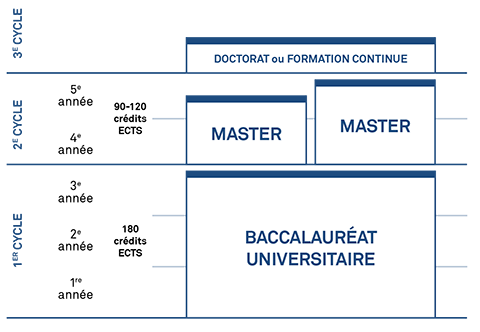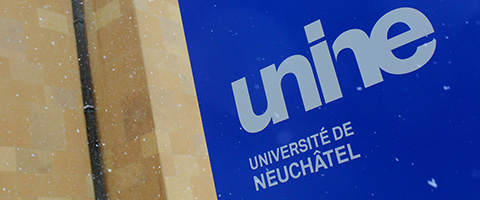A route through university
The UniNE’s courses are conceived within the Bologna Model, which harmonises further education across Europe and promotes national and international mobility between universities during and after studies.

What is an ECTS credit?
At each stage in your education, you can acquire ECTS (European Credit Transfer and Accumulation System) credits. This system aims to facilitate recognition and comparison of teaching programmes at a European level (1 ECTS corresponds to 25-30 hours of work, including the preparation of evaluated work).
What is a Bachelor degree?
As the first phase of university study, the Bachelor degree (university baccalaureate) corresponds to 180 ECTS credits (undertaken, in principle, over six semesters). It constitutes the initial step in your university education, helping you to develop a methodological and scientific way of thinking. In principle, the Bachelor degree opens the door to a subsequent Master degree.
What is a Master degree?
The Master degree, which is the second phase of university study, lasts between three and four semesters (90 or 120 ECTS credits). It builds on the skills acquired at Bachelor level, allowing you to specialise in a given discipline or undertake interdisciplinary studies. The Master degree concludes with a piece of research, dissertation, or even an internship.
What is a doctorate?
After your Master degree, you can continue your education by completing a doctorate – for example, as part of a research project.
Choose your programme
Bachelor and Master programmes
View courses
Study plans
Course descriptions
Jeunes talents
 Programme d'encouragement pour les lycéennes et lycéens particulièrement doués et motivés.
Programme d'encouragement pour les lycéennes et lycéens particulièrement doués et motivés.
En savoir plus





